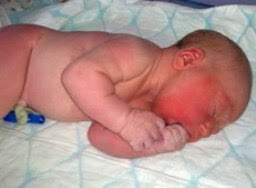GBS affects 1 in 2000 babies born every year in the UK and Ireland, meaning that about 340 babies a year will develop GBS infection within 7 days of birth (‘early onset GBS infection’).
GBS is a bacterial infection. It is not a sexually transmitted disease. Although up to a third of all men and women carry the bacteria in their intestines it rarely causes GBS infection, or side effects. GBS is generally only a problem for newborn babies.
More rarely it can cause infection in adults, typically women during pregnancy or after birth, the elderly and people with serious underlying medical conditions which impair their immune system.
Causes And Risk Factors
If a pregnant woman is infected with GBS, there is a chance she could pass it to her unborn baby. Most babies will not be harmed if their mother is infected, but GBS can cause early birth, stillbirth, late miscarriage and complications.
Roughly a quarter of women of childbearing age carry GBS in the vagina at any one time.
Once a baby has reached three months of age, GBS infection is extremely rare.
Symptoms Of Group B Streptococcus Infection
Of the babies infected with GBS, over 80% will develop symptoms such as breathing problems and blood infection in the first two days after birth. Most of these will make a full recovery.
1 in 10 infected babies will die of blood poisoning, pneumonia or meningitis. 1 in 5 of infected babies will be affected permanently by cerebral palsy, blindness, deafness or serious learning difficulties.
What's The Treatment?
There are tests for GBS but they are not routinely carried out, because results are not always reliable. A high vaginal swab (HVS) can be used to look for bacteria in the vagina but although a positive result is a reliable indicator of GBS, a negative result is much less reliable - in about half the cases where the result is negative, there are actually GBS in the woman's vagina.
Another test has recently become available but is not yet routinely done on the NHS. This test, called the enrichment culture method (ECM) test, is more reliable but not commonly available.
Pregnant women who test positive for GBS should have antibiotics during labour, given through the vein (IV), to stop them passing the infection to their baby. Ideally, these women should have IV antibiotics for at least four hours before their baby is born. Antibiotics are not useful until labour has started.
There are also recognised situations when a pregnant woman requires treatment because there is an increased chance that her baby will be exposed to GBS. These include when the mother's waters break early (before 37 weeks gestation), when labour starts early (again, before 37 weeks gestation) or when the waters break more than 18-24 hours before the mother gives birth.
Swabs are taken from the mother and baby in such cases and the baby given intravenous antibiotics until the results of the swabs are back. If the swabs from the baby are negative, then the antibiotics can be stopped.A woman who has already had a baby infected with GBS in the past, or who has a raised temperature during delivery is also at higher risk of passing on GBS to her baby.
Should All At Risk Women Be Treated?
Some women prefer not to receive antibiotics if their risk is only slightly increased. Experts advise that the risk of a GBS infection in the baby must be balanced against the wishes and beliefs of the woman in labour and against her risk of an adverse reaction to the antibiotics. If a GBS carrying woman had a healthy baby in a previous pregnancy, she is not at greater risk with following pregnancies.
Scientists are trying to develop a vaccine for GBS, but technical problems mean that it's likely to be some years before one is available.

















No comments:
Post a Comment